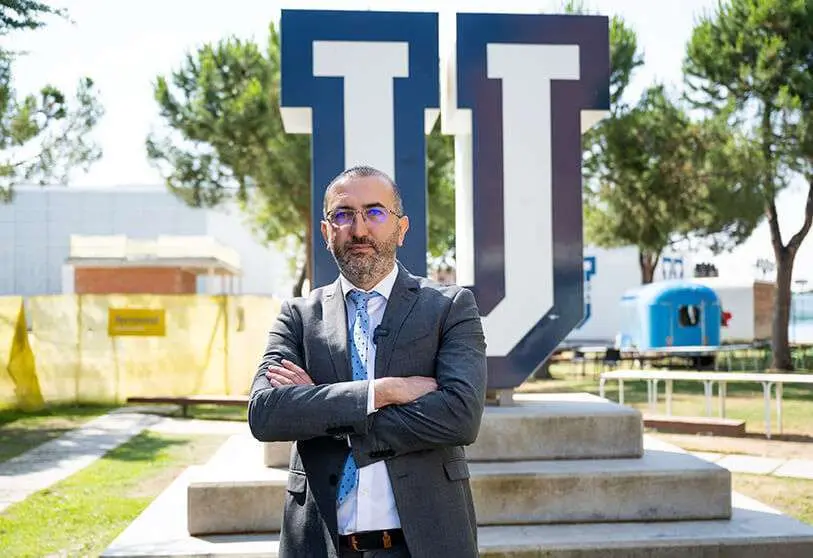Nizar Derdabi: “Los problemas del Sahel afectan a toda la región”

Nizar Derdabi, former senior officer of the Royal Moroccan Gendarmerie, was one of the many speakers at the 2nd Sahel-Europe Dialogue Forum held this weekend at the Francisco Vitoria University (UFV) in Madrid. At the event, some of the challenges facing the African region were presented, as well as the importance of its stability for Europe and the rest of the African continent.
In an interview with Atalayar, Derdabi highlighted Morocco's cooperation with some Sahel countries, especially in terms of security and information exchange, with the aim of preventing terrorist acts, one of the main problems facing the region.
There is much talk about the importance of the Sahel and its stability for Europe. But what is the perception of the region in the Maghreb?
The Sahel region has historical links with Morocco and the Maghreb. The borders of the countries we see now, Morocco, Algeria, etc., were not the borders that existed 200 years ago. For example, Morocco, the Kingdom of Morocco, extended to Mauritania and Mali. There are historical links, but also religious links. It is worth noting that King Mohammed VI is the commander of the faithful. This makes him not only a political authority, but also a religious authority because he is a descendant of the prophet.
The King of Morocco is therefore a religious authority for many religious communities in Mali and Mauritania. In these countries there is also a mixture of populations. For example, the Sahrawi ethnic group is an ethnic group that exists in southern Morocco, but it also exists in Mali, Mauritania and Algeria. All these historical links mean that all the countries are very close. Although Morocco has not a direct border with Mali, as it does with Mauritania and Algeria, we share economic, social and cultural interests. This is what makes the relationship very close.

The Maghreb is the link between Europe and the Sahel. What dynamics is the Maghreb, and Morocco in particular, adopting to reinforce stability in the Sahel?
The problems of the Sahel affect the whole region. However, at present, the Maghreb countries - especially Morocco and Algeria - are not directly affected by instability or insecurity in the Sahel. However, the links I have mentioned mean that everything that happens in the Sahel has repercussions for the other countries in the region. This is why Morocco is developing a strategic partnership with Mauritania and Mali in particular, which encompasses several areas. At the economic level, trade is boosted, especially in agricultural products, fruit and vegetables. Morocco supplies all these agricultural products to Mauritania and Mali, but there is also trade in the other direction.
There is also a social exchange. Many Malian and Mauritanian students are trained in Morocco and on the security front Morocco through its military schools. I went through a military school and in Moroccan military schools there are many trainees from Sahel countries, including Mali, Mauritania, Senegal. It is the same with the special units, for example, the Malian special forces unit was trained in Morocco. This allows the Sahel countries to benefit from Moroccan expertise in the field of security and intelligence.

In the latter, the fight against terrorism is of particular importance. In this area, what is important is the anticipation phase, and how can we anticipate on the basis of intelligence services? Through human intelligence. Morocco's external intelligence services have informants in the Sahel region, they have undercover elements, and all this intelligence is shared with our partners to warn them of possible threats. An example of Morocco's cooperation is the Bataclan attacks in France in 2015. This is just one example of information sharing. At the time of the Paris attacks, Moroccan foreign intelligence had information about the cell. They shared the information with their French counterparts, which allowed them to stop the cell. The problem of terrorism is global, for example, the terrorists who committed the act at the Bataclan are bi-national, i.e. they are citizens of Moroccan origin but settled in France and have French nationality. So the interest of European countries is to cooperate with Morocco because Morocco has networks and information. The exchange goes both ways, Spain also provided intelligence to Morocco. This is the best way to cooperate against the terrorist threat, partnership in terms of intelligence sharing.

How would you describe Maghreb-European cooperation in relation to the Sahel and its challenges?
If we talk about Maghreb-Europe cooperation for the Sahel, Morocco, in its international policy strategy, attaches strategic importance to this partnership. Why? Because in all areas, be it economic exchanges, security exchanges or energy, cooperation is essential. Morocco attaches great importance to this issue, but when we talk about the Maghreb-Sahel partnership, there is a brake: the current crisis between Morocco and Algeria. We are all aware that this is a political problem that needs to be solved, but unfortunately it is a problem that is holding back the partnership. Morocco has bilateral partnerships, Algeria also has bilateral partnerships, but we do not have a joint partnership. This is therefore an obstacle, both from an economic point of view and, above all, from a security point of view.










